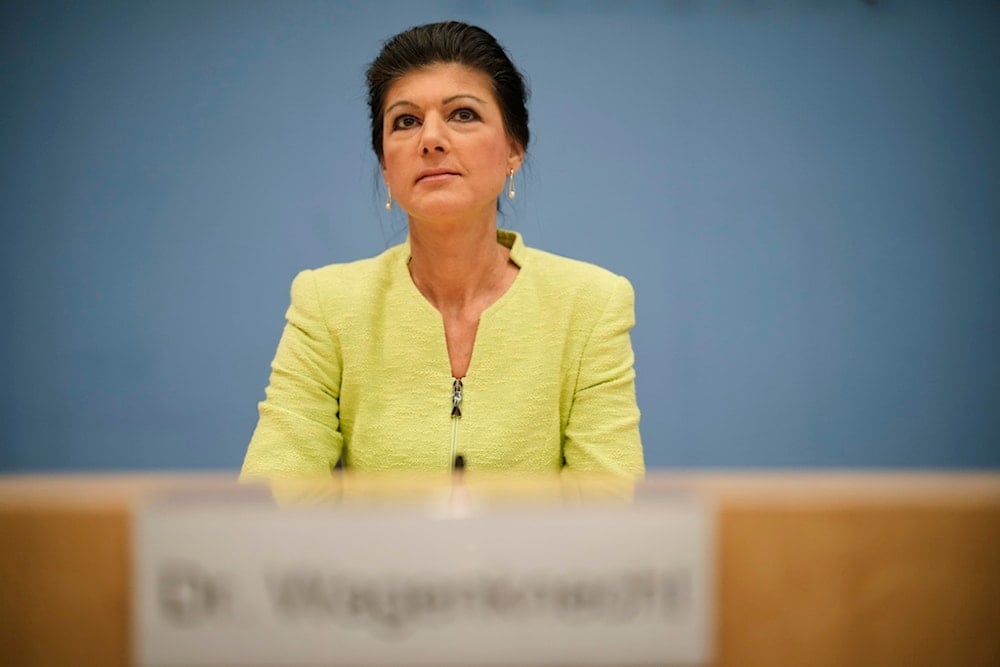Local election reflect desire to avoid war: German leftist Wagenknecht
According to the leader of the Sahra Wagenknecht alliance, Chancellor Olaf Scholz's government does not act in the best interests of the people
-

German politician Sahra Wagenknecht arrives for a news conference to announce the founding of the Sahra Wagenknecht Alliance party in Berlin, Germany, Oct. 23, 2023 (AP Photo/Markus Schreiber, File)
The leader of the left-wing Sahra Wagenknecht Alliance — Reason and Justice (BSW) Sahra Wagenknecht stated on Monday that the recent local elections in the German states of Saxony and Thuringia reflect voters' desire to keep Germany out of a major European war.
"The issue of war and peace became a major theme of this election campaign ... Half of the people in Germany are afraid of the country being pulled into a major war, and in the east, such people are the majority. And two-thirds in the east, according to a Forsa poll, reject plans to deploy US missiles [there]," Wagenknecht told a briefing.
Wagenknecht further said that the election results indicate widespread dissatisfaction with the ruling coalition of the Social Democrats, the Greens, and the Free Democrats.
Chancellor Olaf Scholz's government does not act in the best interests of the people, she said.
Die Wahlen in Sachsen & Thüringen zeigen, wie groß der Wunsch nach Veränderung ist. Das bestätigt unsere Arbeit und gibt Schwung für den Aufbau unserer jungen Partei, den wir weiter mit Hochdruck vorantreiben. Wir stellen die Weichen für eine erfolgreiche Bundestagswahl 2025!
— Bündnis Sahra Wagenknecht (@Buendnis_SahraW) September 1, 2024
Elections for the state parliaments of Saxony and Thuringia were held on Sunday. In Saxony, the Christian Democratic Union (CDU) emerged as the leading party, while the Sahra Wagenknecht Alliance — Reason and Justice (BSW) secured 11.1% of the vote.
Chancellor Olaf Scholz's Social Democratic Party (SPD) garnered 7.3% of the vote. In Thuringia, the right-wing Alternative for Germany (AfD) party won the elections, with the CDU coming in second and the BSW taking third place.
Read more: Use of Taurus missiles means 'declaring of war' on Russia: Wagenknecht
In the past, Wagenknecht has criticized the delivery of arms to Ukraine and the imposition of sanctions against Russia.
She has been critical of some "progressive" policies, including those related to environmentalism and gender identity. She argues that Germany's energy needs cannot currently be met by renewable sources alone and has opposed legislation that makes it easier to change one's legal gender, framing these issues as economically and socially disruptive
She has also accused "Israel" of "ruthless warfare" and has been vocal about her opposition to Germany's support for "Israel", including calling for an immediate arms embargo against the country.

 2 Min Read
2 Min Read








